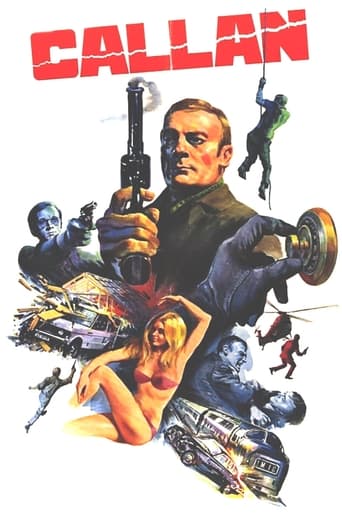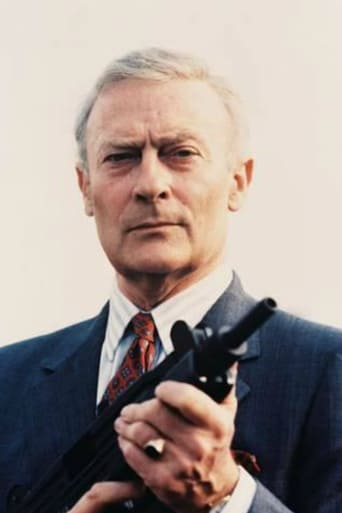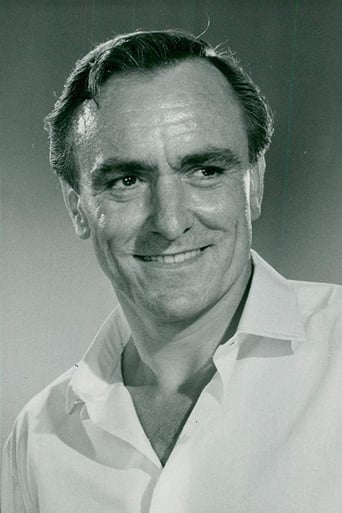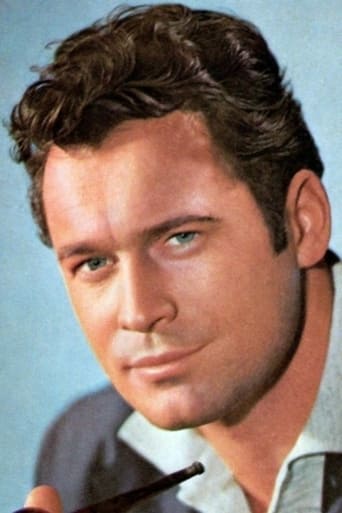Callan (1974)
David Callan, secret agent, is called back to the service after his retirement, to handle the assassination of a german businessman, but Callan refuses to co-operate until he finds out why this man is marked for death.
Watch Trailer
Free Trial Channels
Cast


Reviews
I like the storyline of this show,it attract me so much
The movie really just wants to entertain people.
This is a small, humorous movie in some ways, but it has a huge heart. What a nice experience.
.Like the great film, it's made with a great deal of visible affection both in front of and behind the camera.
It seems to me that half of the British films made during the 1970s seemed to be big-screen outings for popular television series, and while most were comedies, CALLAN is a thriller spin-off of the late '60s TV show. Edward Woodward is the renegade secret agent tasked with assassinating a rival German agent, but first he wants to find out why. This film has a cheap, working class feel to it which is somehow quite different to the rest of the thriller genre from the era. Woodward is solid and the likes of Russell Hunter help to propel the story along in an entertaining fashion, although Carl Mohner bags the most sympathetic role as the war gaming enthusiast. There's also a very well-filmed car chase through the English countryside in which bus shelters are demolished and the like.
While the notion of "franchising" a successful creative work is nothing new today, it was quite novel (sorry for the pun) for author James Mitchell.His spy novel A Magnum for Schneider was published in 1969. It begat a successful book series; a top-rated British TV drama which ran for years, which Mitchell also wrote for; a bona fide international star (Woodward) who was so successfully identified with the role of Callan that he actually crossed the pond and starred in a TV show there called The Equalizer; and, of all things, this bizarre almost reverent attempt to milk the original cow (the first novel) one more time, in 1974, using most of the original cast, in a feature length film, and shot in colour.This should be point in the review where I tell you that this whole exercise was of such high quality that Callan is as watchable today (whenever you are reading this) as it was then. If I said that, I would be lying.While Mitchell had his finger on the pulse of the 60s -- a gradual turning away from traditional and respectable spy stories to something a little more violent and gritty -- it was only a taste of what was to come.Which means that this film, as competent as it is, will always remain merely a curiosity for fans who remember the original. (And also remember, for example, that in the series, Callan not only returned to his "job" but for a while actually ran the entire Section!) Fond memories. But only memories.
David Callan and the TV series he appeared in were the brainchild of writer James Mitchell. Both character and series became a successful phenomenon of the late sixties and early seventies and made a star of Edward Woodward. Conceived as a flip-side to Bond, Callan was a reluctant spy – a veteran combatant of Malaya, dishonourably discharged from the army, a career criminal and ex-con. He winds up blackmailed into working for The Section, the sharp end of cold war espionage. A crack-shot with a pistol and a multiple murderer, he gets the dirty jobs. The Section is all about damage-limitation by whatever means necessary and is run by a series of different bureaucrats with the same codename – Charlie Hunter.Callan's only friend, a pathetic and perpetually nervous thief called Lonely (Russell Hunter) is like something straight out of the pages of Dickens. Their interactions are full of dramatic pathos and distorted humanity, defined by Callan's cruel jibes about Lonely's body odour problem and his at times frightening aggression towards him. In response, Lonely reciprocates with awestruck fear and respect for the man who is the only person who actually cares about him. For despite all, Callan does everything he can to protect Lonely because Lonely is in fact the only person in the world who really cares about Callan.Essentially, Callan has a conscience and it bothers him. He questions and rebels against authority, hates his life but has no other options open. He is a working class thug and peerless killer with a sharp brain and a fractured psyche. He should perhaps be seen as a monster, but his inherent humanity and convincingly empathic personality flaws render him completely relatable and sympathetic.The colour episodes (all available and intact) are arguably less visually impactive than the monochrome ones. Of the sixties black and white series, about nine teleplays have been "lost" for all time – the tapes reputedly wiped by some idiot jobsworth at ITV. Those that remain – including the original introductory play "A Magnum For Schneider" – depict a sixties London that definitely isn't all swinging, all dancing. It is bleak, grimy, downbeat and dangerous - full of squalid bed-sits, creeping social paranoia and post-war depression. Callan lives in the shadows and life there is cruel, harsh and often painfully short.This brings us to the 1974 movie version and the penultimate screen appearance of the character. The last time Callan appeared on screen was in the 1981 teleplay "Wet Job" which, despite being penned by Mitchell, was unfortunately a bit lacking and not the most appropriate of swansongs for such a great creation. Still, it was good to see him meet up with Lonely one last time and live to fight another day.The movie is a retread of "A Magnum For Schneider." A disgraced Callan has been kicked out of The Section, working as a book-keeper for a seedy businessman. This is just a set up for some wet work. Hunter has manipulated the situation to put Callan in close proximity with Schneider, a German industrialist based in the offices next door. He is rich, has Nazi connections and funds global terrorism. Callan is to get close to Schneider – through their mutual love of playing war-games – find and retrieve evidence of his activities and kill him. But it's never that simple. Callan has to operate off the books so The Section has plausible deniability, so he's on his own. If he succeeds, Hunter promises to take him back into The Section.It's a solid enough film, but workmanlike rather than inspired. Woodward is, as always, convincingly superb as the conflicted and tortured agent. Russell Hunter gives his usual authentic portrayal of the ultimate dweller on the fringes of society, a pathetic petty crook habitually addicted to a hopeless life of crime. Toby Meres is this time played by a very smooth Peter Egan, the third actor to take on the role, and he's OK but he's not a patch on Anthony Valentine who truly owns it.There are some memorable moments and lines of dialogue. After Callan kills the towering heavy, Arthur (Dave Prowse), with his bare hands, he tells Lonely that he hit him. "You hit Arthur?" Lonely inquires incredulously. Callan replies: "I hit him... and he died of it." It's a terrific little scene, beautifully played, with both actors conveying an entire range of affecting emotions in mere flickering seconds of screen time. At one later point Hunter inquires: "what about Meres?" to receive the laconic and perfectly delivered response from Callan: "I believe he is unconscious, though with Meres it is difficult to tell." The writing is crisp and bone dry.There are sporadic bursts of realistic action, and the film overall has a pleasing, downbeat early seventies vibe. It captures certain elements of the TV series well – the sense of being close to what real Cold War espionage might have been like – but it really would have benefited from re-using the original Jack Trombey "Callan Theme" to add to the atmosphere. The jaunty harmonica and military band motifs here are no replacement for that slow, resonating guitar hook, spartan strings and melancholic horns."Callan" the movie remains a firm personal favourite for me and it's due another viewing once I've worked my way through my recent purchase of "The Monochrome Years" and "The Colour Years" DVD sets of the original series. All TV episodes in existence are available in these collections and represent one of the best purchases I've ever made. The movie remains a respectful and decent enough representation of one of British TV's greatest and most influential creations.
I thought the film was very good. I like others at first approached the film with a jaundiced view, specifically the totally different effect of the music. However once viewed several times ones' view changes and accepts the film / music / different "Hunter" etc. afresh. No one else could play Callan other than Edward Woodward, the effect of Eric Porter as the new "Hunter" also becomes part of the whole fabric. I have seen the film many times now and to change anything or to try to align it with the way Callan was presented for TV would be detrimental.Enjoy it as it stands without prejudice. One weak spot, the scene where Callan is located with Lonely in a pub by one of Mears' henchmen; you could never jam a kiosk door with a piece of folded up card!








